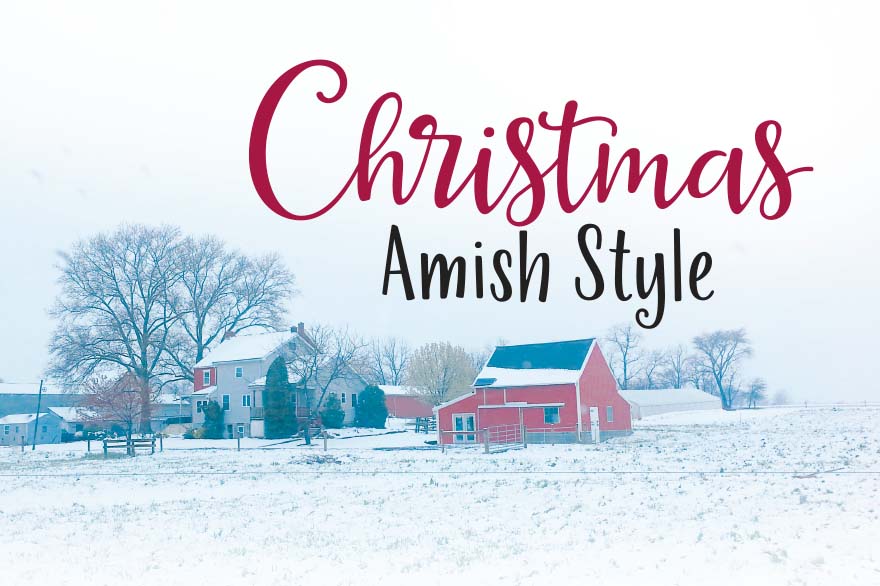No Christmas trees. No evergreen wreaths. No Santa Claus. No red bows or bells. From an outsider’s point of view, it would be easy to believe that, to the Amish, Christmas would be the year’s most important and festive holiday. However, it’s a day set aside for focusing on the family and God, not for gifts and abundance. After all, the Amish are called the Plain People.
It varies from church district to church district but, for the most part, they wake up as early as usual, go about their regular chores, and celebrate the birth of Jesus Christ by sharing a nice supper with their extended family, in the late afternoon or early evening. From then on, their day is spent relaxing and enjoying each other’s company. They might sing some hymns later in the evening when other family members join them for the evening meal. But it is definitely a low-key day.
You might be surprised to learn that Amish people do not attend church on Christmas, even if Christmas falls on a Sunday. While I understood about the missing Christmas trees, eggnog, bright decorations, and gifts aplenty, I was quite taken aback when I learned of the lack of a Christmas Day church service. After all, even the most non-religious people I know still go to church at least twice a year: Christmas and Easter!
“It’s about the family,” one of my Amish friends told me. We were riding in a buggy, returning from a trip to a local yarn shop. She was teaching me how to knit scarves for holiday gifts. It was the perfect time to inquire about how she would celebrate the holidays. “And we have our Christmas service on the Sunday before or after Christmas. Sometimes we will have it on Saturday if Christmas falls on a Sunday. That way, everyone can enjoy the day of Christmas with their families.”
After it was explained to me, it made sense. You see, the Amish don’t celebrate church in a dedicated church building. Back in the 1600s, when the Anabaptists began to form their religion and strayed from the traditions of the Catholic Church, they met secretly in houses and barns. After all, they reasoned, didn’t Jesus proclaim that “For where two or three have gathered together in My name, I am there in their midst” (Matthew 18:20)?
My friend continued by explaining that it would be too stressful for any one family to host the Christmas service as the days and weeks leading up to that service are spent cleaning the house and preparing food for the noon fellowship that follows the three-hour-long service. While many help clean up afterwards, that host family would not have any time left in the day to enjoy their family or to travel to another district to see aging parents or siblings.
Gift-giving is also quite minimal. Children may get a special toy from their parents such as ice skates or knitting supplies. Aunts and uncles might give younger children small gifts such as a wallet or a handkerchief. But that’s the extent of gift-giving. The emphasis is on God, Jesus, and family…in that order. When I asked my friend if she had ever given her own parents a gift, she had to think about it and, finally, laughed as she said, “Why no! I don’t think us children ever did!”
Over the past twenty-five years, I have continually learned from these amazing people who are so strong in their faith and their commitment to each other. This year, I intend to follow their example by simplifying my own Christmas and making certain that Christ remains at the center of it.
Sarah Price is a best-selling author of Amish Fiction. Some of her titles include Fields of Corn, Valley of Hope, The Tomato Patch, The Quilting Bee, Amish Circle Letters, and A Gift of Faith: An Amish Christmas Story. Her books can be found on Amazon.com, BN.com, and Kobo.com. She can be found on Facebook at www.facebook.com/fansofsarahprice and on her blog at www.sarahpriceauthor.com.
— Sarah Price

